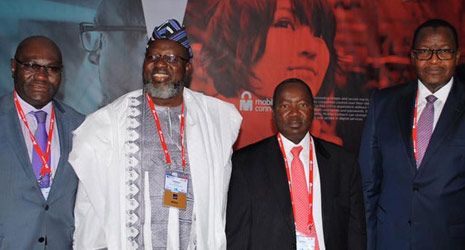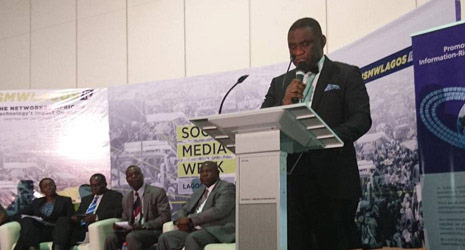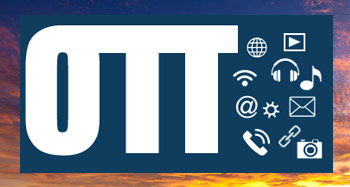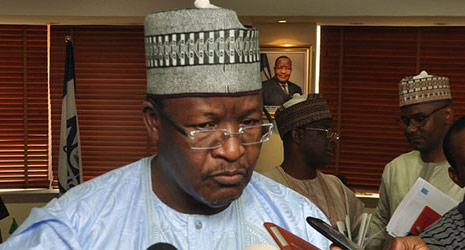News & Headlines
Check here for the latest news and headlines of what's going on in the Nigerian telecommunications industry and the activities of the Nigerian Communications Commission

- Details
- Written by: Okoh Aihe
Considering the pivotal role telecommunications plays in the lives and economic wellbeing of any country, no effort should be spared in protecting the infrastructure and platforms of the industry, according to Executive Vice Chairman (EVC), of the NCC, Prof. Umar Garba Danbatta.
But NCC is concerned about increasing cases of illegal sealing up of telecoms Base Transceiver Stations (BTS) across the country by various persons, including organizations, communities, agencies of the Federal State and local government at times using law enforcement offices.
Danbatta who led a team of NCC Directors and officials on a courtesy visit to the Inspector General of Police (IGP), Solomon Arase in Abuja recently, lamented that apart from the actions being illegal, they also violate criminal Justice Miscellaneous Provisions) Act, CAP C39, laws of the Federation of Nigeria, 2004. Sealing up of Base Stations also has its social implication that is cutting off subscribers from communicating thereby degrading quality of service, which is already a major concern.

- Details
- Written by: Sonny Aragba-Akpore
With over 107 percent teledensity for voice segment of telecommunications services already achieved in Nigeria, Executive Vice Chairman (EVC) and Chief Executive of the Nigerian Communications Commission (NCC) Prof. Umar Garba Danbatta recently assured International and potential investors that Nigeria remains a sure haven for ICT investments.
Danbatta spoke during a panel discussion in Barcelona, Spain, on the topic “is closing the digital divide in Sub-Saharan Africa myth or reality”.
He assured the International Community that the NCC’s eight-point agenda has been carefully packaged to cushion all aspects of investments, especially "as we move to the next frontier of ICT revolution – broadband for internet connectivity."
The panel discussion was a part of the Regional summit for Sub-Saharan Africa at the just concluded, Mobile World Congress (MWC) by GSM Association, in Barcelona, Spain.

- Details
- Written by: Okoh Aihe
The Nigerian Communications Commission, NCC, made a perfect hit last week when it chose the platform of the Social Media Week which held in Lagos from February 22-26, 2016, to draw the attention of netizens to the Cybercrime Act which was signed into law in May last year. Addressing a very youthful population who mostly live their life in the cyber ecosystem, the Executive Vice Chairman of the Nigerian Communications Commission, Prof. Umar Garba Danbatta charged them to acquaint themselves with the contents of the Act in order to be properly guided in their cyber operations.
Speaking through Mr Tony Ojobo, Director, Public Affairs, at the main stage event, Danbatta observed that the Cybercrime Act has become law since May last year; it was therefore imperative for New Media practitioners to familiarise themselves with the contents of the law as it affects their practice. Pointing to various sections of the Act, he explained that the Act does not encumber freedom of expression as erroneously believed but instead it seeks to protect those whose freedom may be damaged by the freedom freely expressed by others.

- Details
- Written by: Okoh Aihe
The Executive Vice Chairman of the Nigerian Communications Commission, Prof Umar Garba Danbatta, last week in Lagos, said that fears being expressed that the Commission wants to start regulating over the top (OTT) services in the country are totally misplaced as the regulatory agency has no plans now or in the immediate future to regulate such services.
Speaking through Mr. Tony Ojobo at the Social Media Week, Danbatta explained that what may have given rise to the speculations is a document titled, An Overview of Provision of Over The Top (OTT) Services put on the Commission’s website by the Policy, Competition and Economic Analysis Department intended mainly to elevate discourse on this new genre of telecoms services occasioned by what the industry refers to as disruptive technology.
In his explanation, “OTT services are services carried over the networks, delivery value to customers, but without any carrier service provider being involved in planning, selling, provisioning, or servicing them, thereby implying that traditional telecos cannot directly earn revenue from such services. These over-the-top services include services such as Internet Protocol (IP) telephony, live streaming and other social media applications.”

- Details
- Written by: Okoh Aihe
Prof. Umar Garba Danbatta, few months after assuming office as the Executive Vice Chairman (EVC) and Chief Executive of the Nigerian Communications Commission (NCC), has released a pointed roadmap to excite the telecommunications industry and attract fresh local and international investment to the sector.
Tagged The 8-Point Agenda, the roadmap is conveniently seated on the 3-A tripod of Availability of service, Accessibility of Service, and Affordability of service. It is informed by the change mantra of the Buhari administration which revolves around an ideological shift in creation of structures for social benefits and inclusiveness for national development.
Captured under broad headlines and followed by Vision and Strategy for implementation, the agenda, according to Danbatta, will catapult the industry to the next level of growth, and create wealth and development for the people who are being encouraged to take advantage of the steady growth and relevance of the telecommunications industry.
Valued at over $32bn at the moment, the Buhari Administration expects the sector to play a lead role in its drive for development and a re-focusing of the nation’s economy by way of weaning it from perennial dependence on oil. With oil prices hitting an all-time low in the international market, the agenda has become a timely intervention.
